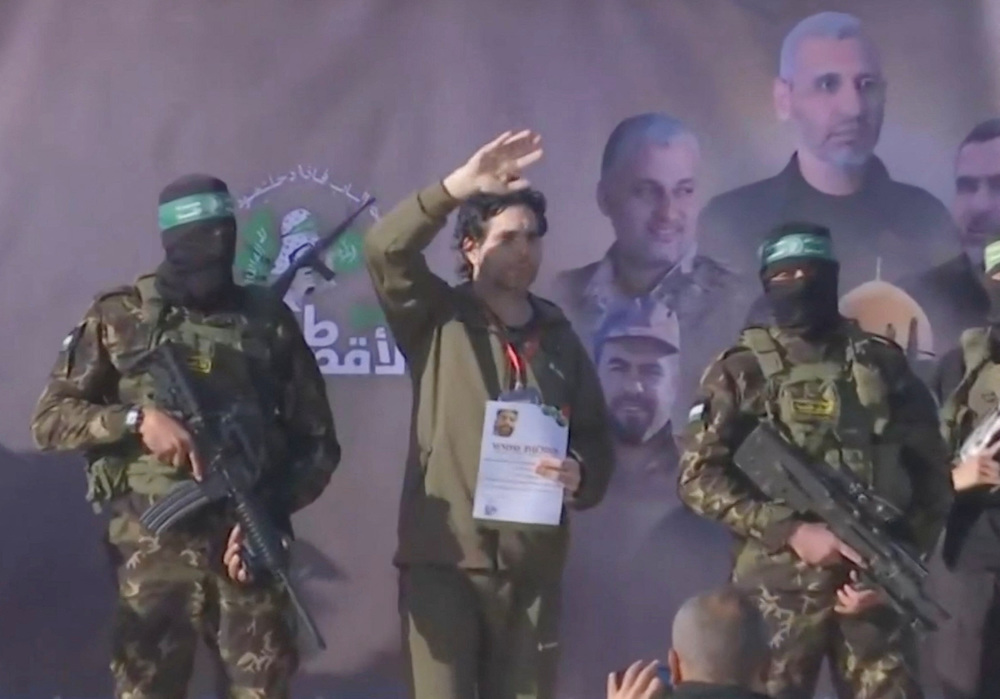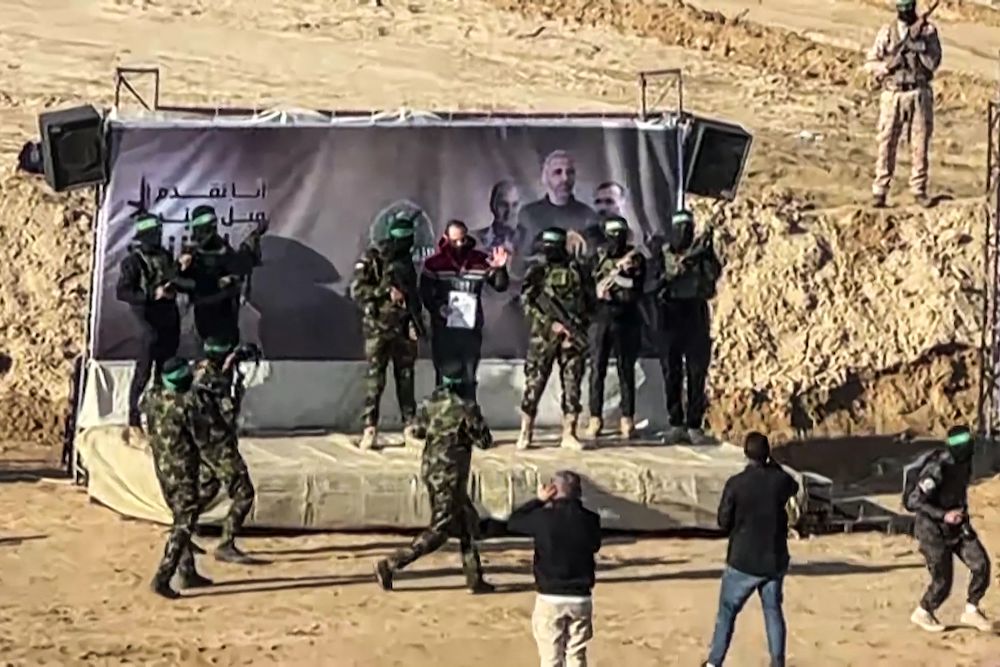GAZA STRIP: Israel carried out fresh strikes in southern Gaza on Tuesday, forcing hundreds of Palestinians to flee after the army once again ordered the evacuation of certain densely populated areas.
Witnesses reported multiple strikes in and around the city of Khan Yunis, where eight people were killed and more than 30 were wounded, according to a medical source and the Palestinian Red Crescent.
The bombardment came after a rare rocket barrage claimed by the militant group Islamic Jihad, which has fought alongside Hamas.
The rockets were aimed at Israeli communities near the Gaza border and were fired in retaliation for Israeli “crimes... against our Palestinian people,” said the Al-Quds Brigades, the armed wing of Islamic Jihad.
The Israeli military said about “20 projectiles were identified crossing from the area of Khan Yunis,” most of which were intercepted. It reported no casualties and said artillery was “striking the sources of the fire.”
This was followed on Monday by an order to evacuate Al-Qarara, Bani Suhaila and other towns in Rafah and Khan Yunis, nearly two months after an initial order to evacuate Rafah ahead of a ground offensive.
Prior to Israel’s ground incursion in Rafah, well over one million people had been displaced to Gaza’s southernmost city.
“Fear and extreme anxiety have gripped people after the evacuation order,” said Bani Suhaila resident Ahmad Najjar. “There is a large displacement of residents.”
Other parts of the Gaza Strip were reeling from continued fighting nearly nine months into the devastating conflict.
Witnesses and the civil defense agency reported Israeli air strikes in the southern Rafah area and in the central Nuseirat refugee camp.
And in Gaza City’s Shujaiya district, where battles raged for a fifth day on Monday, witnesses reported heavy Israeli tank fire.
An AFP correspondent reported Israeli helicopters firing on houses in Shujaiya, while Hamas’s armed wing, the Al-Qassam Brigades, said it was continuing to fight in Shujaiya and Rafah.
The Israeli military said troops “eliminated numerous terrorists” in raids in Shujaiya, where air strikes also killed “approximately 20” militants.
The military also announced the death of a soldier in southern Gaza, bringing its total toll during the ground offensive to 317.
Netanyahu, who recently declared that the “intense phase” of the war was winding down, said on Sunday troops were “operating in Rafah, Shujaiya, everywhere in the Gaza Strip.”
“This is a difficult fight that is being waged above ground... and below ground” in tunnels.
The war started with Hamas’s October 7 attack on southern Israel, which resulted in the deaths of 1,195 people, mostly civilians, according to an AFP tally based on Israeli figures.
The militants also seized 251 hostages, 116 of whom remain in Gaza including 42 the army says are dead.
Israel’s retaliatory offensive has killed at least 37,900 people, also mostly civilians, according to data from the health ministry in Hamas-run Gaza.
Months of on-and-off talks toward a truce and hostage release deal have made little progress, with Hamas saying Saturday there was “nothing new” in a revised plan presented by US mediators.
Israeli authorities released Mohammed Abu Salmiya, director of Gaza City’s Al-Shifa hospital, along with dozens of other detainees returned Monday to Gaza for treatment, sparking anger from Netanyahu.
Successive Israeli raids have reduced large parts of Al-Shifa, the territory’s largest medical complex, to rubble.
Israel has accused Hamas of using Al-Shifa and other hospitals in Gaza as a cover for military operations, claims the militants have rejected.
Speaking after his release, Abu Salmiya said he had suffered “severe torture” during his detention since November.
“Detainees were subjected to physical and psychological humiliation” and “several inmates died in interrogation centers and were deprived of food and medicine,” he said.
Israel’s Shin Bet intelligence agency said it had decided on the release alongside the Israeli military “to free up places in detention centers.”
The agency said it “opposed the release of terrorists” who had taken part in attacks on Israeli civilians “so it was decided to free several Gaza detainees who represent a lesser danger.”
But Netanyahu said he had ordered the agency to conduct an investigation into the release and provide him with the results by Tuesday.
“The release of the director of Shifa Hospital is a serious mistake and a moral failure. The place of this man, under whose responsibility our abductees were murdered and held, is in prison,” Netanyahu said in a statement.
According to Abu Salmiya, no charges were ever brought against him.
The United Nations and relief agencies have voiced alarm over the dire humanitarian crisis and the threat of starvation the war and Israeli siege have brought for Gaza’s 2.4 million people.
The UN humanitarian agency OCHA reported that during the month of June, Israeli authorities facilitated less than half of 115 planned humanitarian assistance missions to northern Gaza.
In a displacement camp in Gaza’s Deir Al-Balah, pharmacist Sami Hamid said skin infections were on the rise, particularly among children, “because of the hot weather and lack of clean water.”
“The number of skin infections has increased, especially scabies and chickenpox,” as have hepatitis cases probably linked to untreated sewage flowing right beside tents, said Hamid.
Israel strikes southern Gaza after ordering evacuations
https://arab.news/9c5fh
Israel strikes southern Gaza after ordering evacuations

- Witnesses reported multiple strikes in and around Khan Yunis
- Order came to evacuate Al-Qarara, Bani Suhaila and other towns in Rafah and Khan Yunis


























